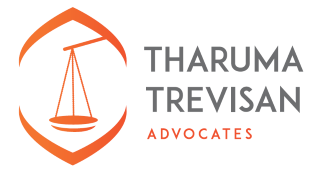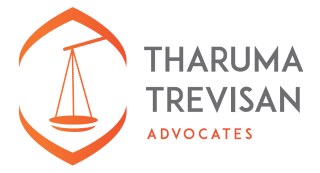
Case Brief Civil Appeal No. 133 of 2011 Attorney General -vs- Law Society of Kenya and Another
By Ian Njathi
(LL.B., LLM, Dip in Law)
Coram : Waki, Makhandia and Ouko JJ
Facts of the Case
Following the enactment of the Work Injuries Benefit Act of 2007 (WIBA), a dispute arose as to the constitutionality of some of the provisions of the Act.
Pursuant to Gazette Notice No. 3204 of 16th May 2001, a taskforce was appointed to review and make recommendations to all labour laws for appropriate legislative intervention.
This culminated in a report that formed the basis of the enactment of WIBA in 2007 and the Act was operationalized on 2nd June 2008 by Gazette Notice No. 60 of 23rd May 2008.
Following the operationalization of the Act, the 1st Respondent filed a petition on 14th April 2008 contesting the constitutional validity of various provisions of the Act.
1st Respondent’s claims
The Respondents claimed that the provisions of the Act that were contrary to the Constitution and asked that the court declare them null and void. The contested provisions of the Act included:
Section 7(1) which compels an employer to obtain and maintain an insurance policy from an insurer approved by the Ministry of Labour and subsection 4 which made it an offence to fail to obtain and maintain such a cover.
This was against section 80(1) of the former Constitution as it deprived the Respondents members the freedom to take out insurance policies for their employees with any licensed insurance company of their choice and the obligation imposed to commit additional funds to the obtaining and maintenance of the insurance policy constituted as taking of the Petitioner’s property which was contrary to section 75(1) of the former Constitution.
Furthermore, the criminal offence created by the Act was not a legitimate exercise of the State’s police power.
Section 10(4) which creates a liability on the part of an employer “without fault” even where the employee is demonstrated to be at fault and such a provision deprives an employer their constitutional right to raise a defence that the incident arose from the employees’ criminal, negligent or unauthorised action and as such violated the employers right to a fair trial as espoused in Section 77(1) of the former Constitution and also authorized unlawful acquisition of property contrary to Section 75(1) of the former constitution.
Section 16 which prevents an employee from instituting a court action for recovery of damages in respect of injuries arising from an accident or disease. This was understood to mean that all court actions pending hearing and /or delivery of judgement at the time of passage of the Act would be adjourned generally and decrees from judgements already delivered could not be executed.
Section 23(1) conferred upon the Director of occupational safety and health services the power to make decisions on any claim. The effect of which, in the 1st respondents view divested judicial power from the courts and conferred them exclusively to the Director which was in contravention to Section 60 of the former Constitution.
Additionally, in the event an employer fails to provide particulars to the Director, he would be liable to a criminal charge which undermined Sections 60, 77(9) and (10) of the former Constitution as Judicial power rested in the courts of law.
Section 52(1) and (3) required the director upon receipt of an objection to give written answer to the objection, varying or upholding his decision and giving reasons for the decision objected to. The objector under the Act was entitled to lodge an appeal to the Industrial Court against the decision of the Director with no corresponding right to the affected person. This amounted to discriminatory treatment contrary to Section 82(1) of the former Constitution.
Section 58(2) required that claims instituted prior to the commencement of the Act were deemed to be lodged under the Act. The 1st respondent maintained that the provision sought to take away the right to a legal process in respect of matters covered by the new statute as it sought to convert suits pending in the court into claims under the Act in contravention of Section 75(1) of the former Constitution to the extent that it purported to take away property without due process.
2nd Respondent’s Claims
The Second Respondent applied to be admitted as an interested party based on its public mandate to protect interests of workers who would be affected by policy making.
Appellant’s Claims
The Appellant denied that the impugned sections of the Act were in violation of the Constitution and argued that they did not breach any of the individual rights enshrined in Chapter V of the former constitution.
They further argued that the laws in question were balanced and beneficial to both employer and employee as they promoted development that was consistent with fundamental principles and rights at work, cultivated transparent and accountable governance that facilitated for expeditious and efficient resolution of labour disputes, promoted freedom of association and effective right to collective bargaining, eliminated all forms of forced and compulsory labour and ensured elimination of discrimination in employment.
Petition Court’s Conclusion
The Court upon consideration of the submissions of the parties found that WIBA failed to meet professional standards of draftsmanship and scrutiny and as such was inconsistent with certain provisions of the Constitution and set out to declare Sections 4; 7(1) (2); 10(4); 16; 23(1); 25(1)(3); 52(1)(2) and 58(2) as nullified.
The Court further refused to nullify the entire Act as the pleadings and submissions were focused on particular provisions. The court, however, called for comprehensive drafting and reformulation of the Act in Future.
Appeal
Aggrieved, the appellant moved the court in challenging the decision arguing that the learned judge erred in law in declaring the nine sections of the Act inconsistent with the Constitution.
They submitted that Section 7(1) did not violate the rights of association and assembly and did not compel the employer to take out an insurance policy with a particular insurer but merely required the employer to use one of the insurers approved by the Minister.
The appellant further contended that section 10(4) only enacts strict liability and does not amount to unlawful acquisition of private property. They added that section 16 was not unconstitutional as right of access to courts may be limited by law
The validity of section 23 was argued in the sense that in certain circumstances the courts authority may be divested through statute.
On the constitutionality of section 53(2), the appellant argued that there was nothing wrong with the provision that entitles an objector to lodge an appeal against a decision of the Director without a corresponding right since the law permits differential treatment.
On section 58(2), the Appellant insisted that claims brought prior to the commencement of the Act to have been brought under the act was in consonance with the law as a statute can operate retrospectively and retroactively and as such did not deprive respondents members the right to judicial process, it merely provided another forum of dealing with insurance claims.
Respondents Reply
The 1st respondent supported the conclusion of the learned judge and argued that the section 7(1) and (2) conferred upon the minister unbridled discretion to choose the insurer and concurred that it was in conflict with the constitutional right to freedom of association. Furthermore, it amounted to taking away property of the employer without due process.
On Section 10(4), the respondents argued that liability on the employer would be presumed regardless of the circumstances, notwithstanding the fact that the employee was acting against the law and as such eliminated any defence raised by the employer
On sections 16 and 23, they argued that the sections extinguish an employees’ right to file an action in law and thus transfers judicial powers to the Director
On section 52(1) and (2), they argued that it had the effect of having an abjection by an aggrieved party heard and not according the other person a similar opportunity
On section 58(2) they contended that many work injury cases had been lodged in the normal manner and were in various stages and it would be an impossibility to transfer such suited to be claims under the Act as claimants would be non-suited and denied due process contrary to Article 50.
Issue
To determine whether there was justification to strike down parts of the WIBA.
Ruling
The court in determining the appeal, set out its mandate as per section 123(8) of the former Constitution to exercise its jurisdiction in relation to any question whether Parliament has exercised those functions in accordance to the Constitution or any other law.
It also noted the importance to test whether the impugned sections of WIBA were against the Constitution of Kenya 2010 and was of the opinion that the cardinal rule in construing a statute or provision of statute, is to interrogate the intention expressed in the statute by drafters.
Holding
It held that in examining whether a particular statutory provision is unconstitutional, the court must have regard not only to its purpose but also its effects. Therefore, every statute passed by legislature enjoys a rebuttable presumption of constitutionality.
The court found that section 4 was not intended to be impugned as it was a definition section and the learned judge did not say how it was inconsistent with the former Constitution. They were of the opinion that the learned judge intended to annul subsection 4 of section 7 which he found to be in conflict with section 75(1) of the constitution.
With regard to section 7(1)(2) and (4), the court found it to be a good and innovative idea for the employer to take out an insurance policy for its employees in relation to work related injuries and diseases. It however was of the view that in a free market economy, the government should not dictate to employers from which insurer they must take the policy. They held that the requirement that the insurer be approved by the minister went against section 80 of the former Constitution and Article 36 of the current Constitution on freedom of association.
On section 10(4) which imposed liability on the employer regardless of who was to blame for injury, disease or death, the court was of the opinion that it offended the principle of ex turpi causa non oritur actio. If an employee is injured through willful misconduct, unauthorised action or in the course of committing a criminal act, the employer cannot be held to be liable and should be free to raise a defence of illegality or contributory negligence. The court found that the learned judged erred in finding the provision inconsistent with section 77 of the former Constitution as it dealt with fair hearing of persons charged with criminal offences but was of the opinion that section 10(4) (a) and (b) was not satisfactory under Article 47 as it is Arbitrary in its terms
On sections 16, 23(1), and 52(1), the learned judge had found the provisions as offending the constitution by vesting the Director unlimited powers of making inquiries, determining questions of liability and quantum of award of compensation thus denying the employer the right to a fair hearing as he is deemed liable without being heard and that the only way of dealing with such litigious claims was through the Industrial Court (Employment and Labour Relations Court). Additionally, section 52(2) was discriminatory on account that it created an appellate locus for the Objector in respect of the determinations of the Director but none for the affected party.
However, on appeal, the court found that there was nothing offensive of the Constitution or discriminatory about the provisions as section 16 restricts claims for the recovery of damages in respect to occupational injuries resulting in disablement or death of the employee to the procedure laid down in the Act. With regard to the powers of the Director, he has enormous adjudication powers from the point a report is filed, award of compensation to the review of a decision. It followed the decision of Samuel Kamau Macharia &Another V. Kenya Commercial Bank Limited &2 others, that a court’s jurisdiction flows from the Constitution or Act of Parliament and it cannot arrogate itself jurisdiction not conferred upon it by law and where there is a clear procedure for the redress of any particular grievance prescribed by the Constitution or Act of Parliament, that procedure should be strictly followed. The court failed to find anything inconsistent to the Constitution with sections 16 and 23 as they found the Director’s powers to be circumscribed and not arbitrary.
Although section 25 of the Act was invalidated by the learned judge, the Memorandum of Appeal did not address how it was inconsistent with the Constitution. The section, 25(1), provided for the requirement by the Director or employer, of an employee who is claiming compensation or has been paid or compensation is payable, to submit themselves for an examination by a medical practitioner designated by the Director or employer with the approval of the Director. Additionally, section 25(3) provided that an employee is entitled at his own expense to have a medical practitioner of his choice present at the examination.
With regard to the above provisions, concern was raised in relation to subsection (3), the court found no discrimination for any party as it provided equality by giving the employee an option to have their own medical practitioner present for the examination. Therefore, it was erroneous to strike the provision off for being in conflict with section 82 of the former Constitution.
Sections 51 and 52 provide for an appellate system. Any person aggrieved by a decision of the Director may lodge an objection to the decision. The Director must give a written answer after considering the objection either varying or withholding the decision. Subsection 2 allows for the objector to appeal against the decision to the industrial court. The learned judge found this provision to be in conflict with section 82 of the former constitution as it was discriminatory in its view as it allowed only the objector the right of appeal and not the other party.
In this case an objector is the person challenging the Directors initial decision on liability and award of compensation. The presumption made in section 52 is that it is still the same objector who is aggrieved by the answer of the Director that seeks the intervention of the Employment and Labour Relations Court.
In the Courts opinion, a party in whose favour a decision is made may sometimes still be dissatisfied and wish to challenge the Directors answer. The provision’s effect is that only the objector has a right to appeal and not the other party or affected party wishing to vary the award.
Furthermore, it was the courts view that the provision was simply a drafting error as they found no reason why in an adversarial litigation only one party had the right of appeal. They found no inconsistency with the former Constitution as it was an error that could simply be amended by Parliament.
With regard to section 58(2) which provides that claims arising from an accident or diseases occurring before the commencement of the Act would be deemed to have been lodged under the Act. According to the learned judge the effect of this is that existing claims before the courts at the commencement date of the Act which have not reached decree stage, the claimants would be non-suited and would thus be denied due process of the law. Which in some cases would amount to confiscation which is protected under Section 75(1) of the former Constitution rendering the provision inconsistent with the former Constitution.
The Court’s opinion was that in legal practice where a new judicial forum is created to replace an existing system, the norm is to finalize all proceedings pending in the previous system before that forum they were commenced. Furthermore, the court found that in its original form section 58(2) though not inconsistent with the former or current Constitution in their view, it requires further consideration to ensure smooth transition to the Act from the Workmen’s Compensation Act.
Conclusion
In concluding the appeal, the Court allowed the appeal to the extent that they set aside the learned judge’s orders declaring sections 4, 16, 21(1), 23(1), 25(1)(2), 52(1) (2) and 58(2) to be inconsistent with the former Constitution with only sections 7 insofar as seeking the minister’s approval or exemption and 10(4) as inconsistent with the former and current Constitution.
Latest Posts
Step by Step Guide to Subdvision of Land in Kenya
Agnetah Muli LL. B, KSL Dip. What is Subdivision? The process of subdivision involves the division of land into two or more parcels. The purpose is to...
COMPREHENDING REDUNDANCY IN EMPLOYMENT LAW – KENYA
“Fairness in all forms of termination is the staple of labour law”- Anon By Quincy Jesse Kiptoo LL.B. (Hons), CPM, Dip in Law The word Redundancy...

